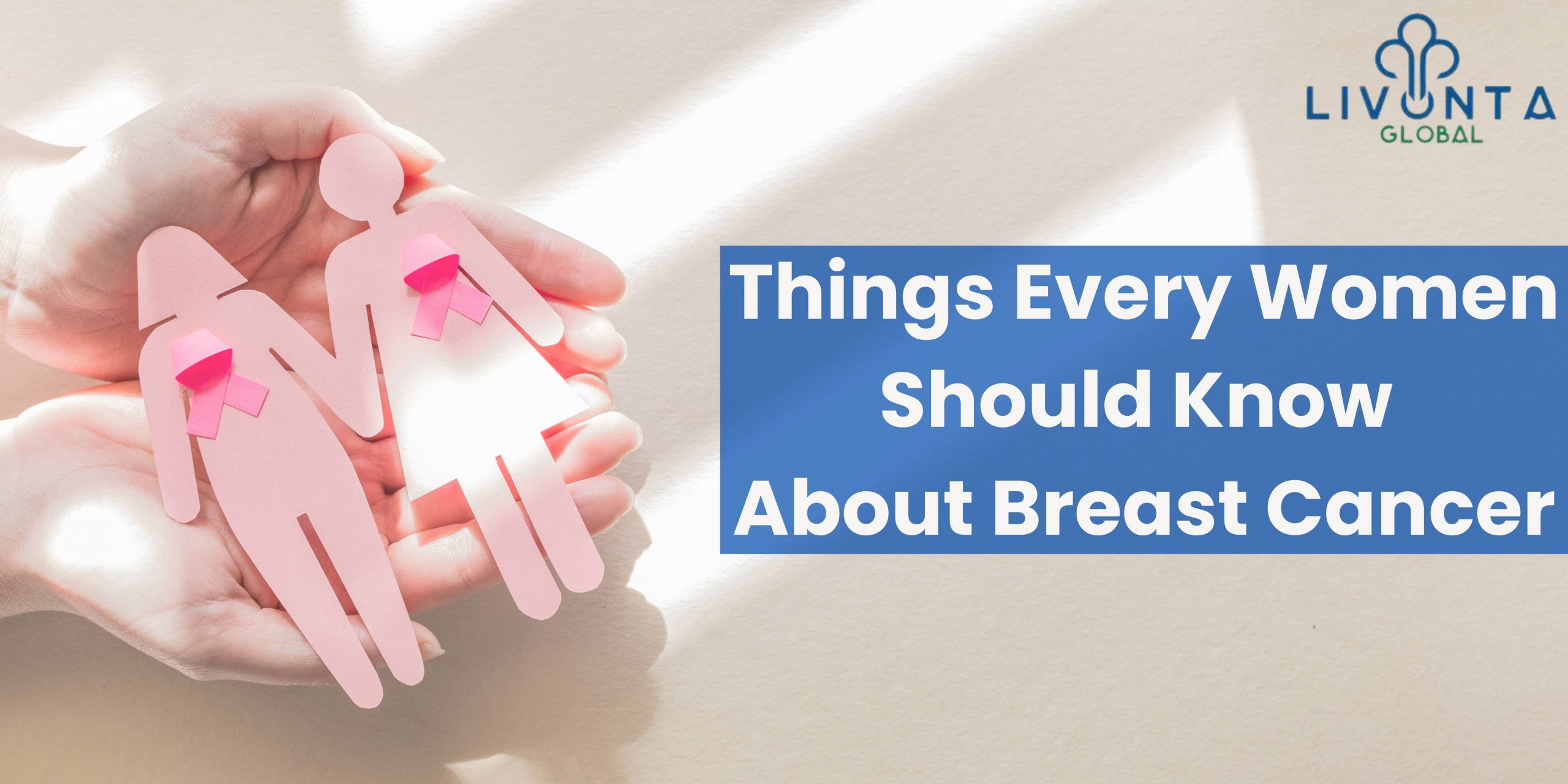
Things Every Women Should Know about Breast Cancer
Nearly 13,000 women under the age of 40 are diagnosed with breast cancer each year; this represents 7% of all breast cancer cases and 40% of all cancer diagnoses in women under the age of 40. Throughout her lifetime, a woman has an 8% chance of developing breast cancer. Women should be aware of the risk factors regardless of their age. The only chance of survival in the majority of breast cancer cases is an early diagnosis and when they receive the best cancer treatment in India. The second most common cause of death for women in America is breast cancer, one of the most prevalent malignant diseases. When compared to breast cancer fatalities, about 4 times as many women each year pass away from lung cancer. Although it is uncommon, men can develop breast cancer as well. There is advanced cancer treatment in India that can help patients survive if diagnosed early.
Understanding The Anatomy
To comprehend how breast cancer develops, it is crucial to study the anatomy of the breast. Adipose (fatty) tissues make up the female breast, which also contains connective tissue, ligaments, nodes, lymphatic vessels, and blood vessels. The breast is divided into 12–20 sections, or lobes, each of which is made up of tiny lobules that are in charge of generating milk. The ducts connecting the lobules and lobes transport the milk to the nipple. Ductal carcinoma, one of the most prevalent types of breast cancer that affects more than 80% of all breast cancer patients, develops in the ducts. About 10% of cases of lobular carcinoma are this. The remaining instances combine lobular and ductal cancer features.
Learn How to Perform Breast Screenings
Breast cancer is one of the major causes of death for women between the ages of 15 and 34, although only accounting for 7% of cases identified in those under the age of 40. It becomes crucial to raise awareness about breasts so that individuals can spot lumps developing and recognise symptoms early on. They can seek assistance from a doctor who can instruct them on how to perform an appropriate breast self-exam.
Know The Risk Factors
Breast cancer is more common in adults, however, it can also occur in younger women for the reasons listed below:
- Heritable mutations such as (BRCA A1 and/or BRCA2)
- A personal history of breast cancer before the age of 40
- Two or more first-degree relatives have a history of breast cancer (mother, sister, or daughter).
- Menstrual cycles that start early (before age 12)
- Chest radiation exposure from high dosages
- A woman over 30 who becomes pregnant for the first time at full term.
- Excess alcohol consumption
- Thick breasts
- Weight gain
- A poor diet or consuming a lot of red meat
- Long exposure to oral contraceptive
- Personal experience with colon, endometrial, or ovarian cancer
- A sedentary way of life
Breast Changes to Watch
Keep a close eye out for any changes in the breasts, and seek medical attention if anything out of the ordinary is seen:
- A bulge under the arms, in the breast, or nearby
- Modification of breast size or form
- Dimpling, bulging, or puckering of the chest-region skin
- A shift in the nipple’s position or an inverted nipple (pushed inward the breast instead of sticking out)
- The swelling
- Skin rashes, swelling, and redness
- Nipple erupting (could be a milky, yellow liquid or watery or blood)
It’s crucial for women to understand how their healthy breasts typically feel because normal breast tissue can also be lumpy. Even though the majority of lumps could not be malignant, the diagnosis is crucial.
Patients should be their own best advocates for their health and make sure to inform their doctors of any changes or tumours on their chest. When a patient is diagnosed with breast cancer, it is crucial that they find the best medical practitioners to treat them. A second opinion can help patients explore new treatment alternatives or confirm that their first treatment plan is the right one for them.
Cancer Treatment
Tags: breast cancer, Cancer Risk, cancer treatment

